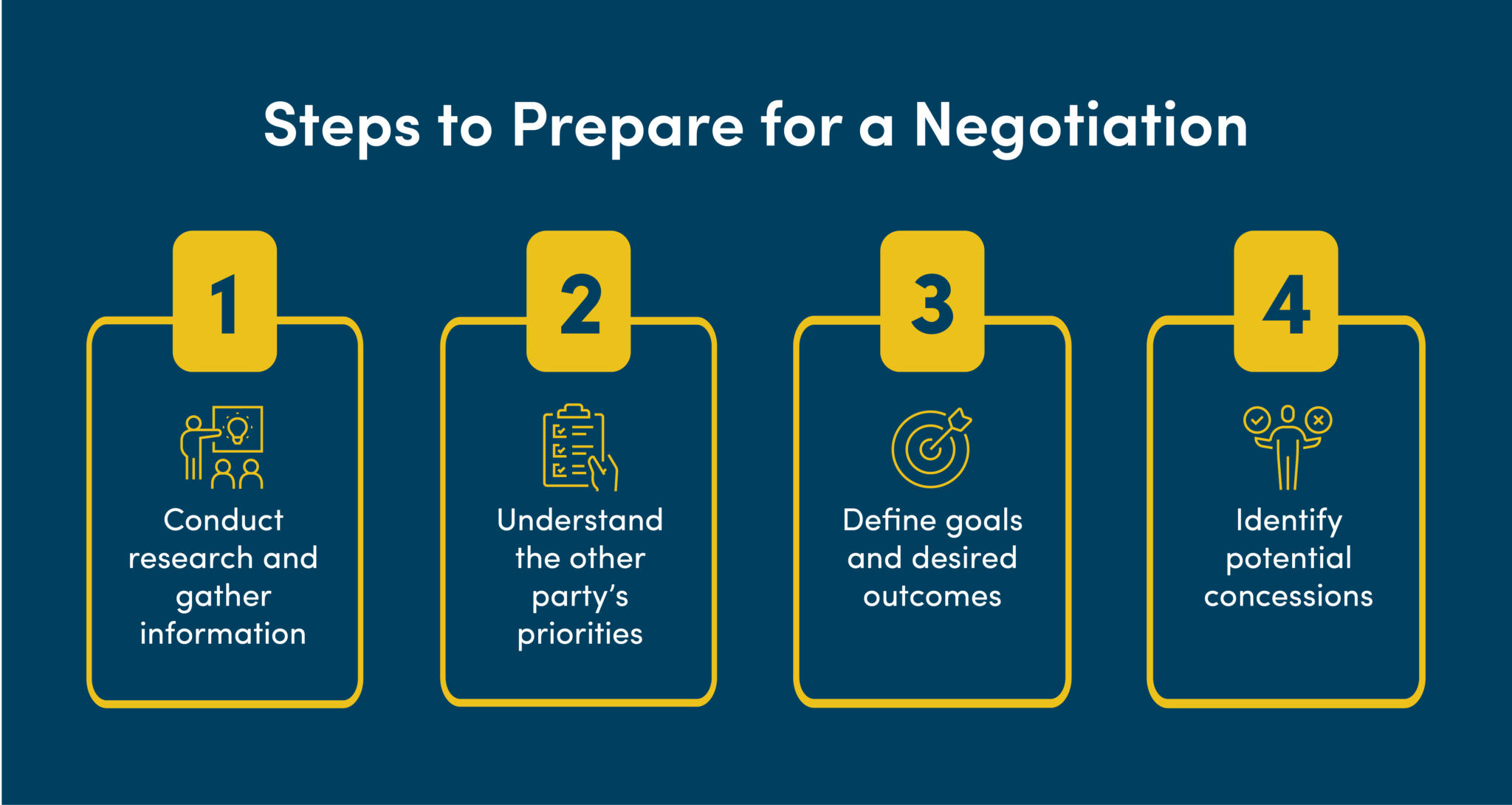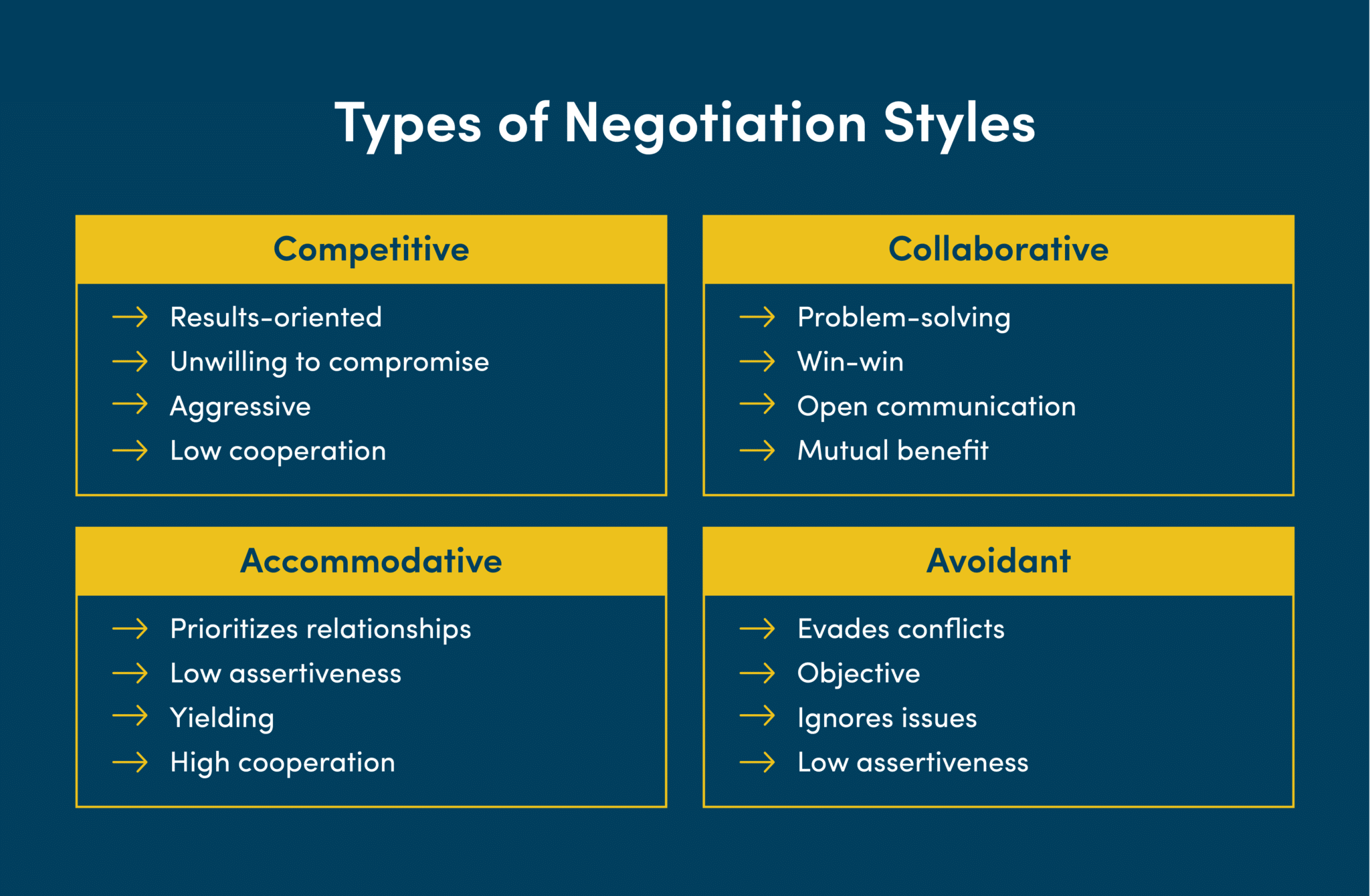
Negotiation techniques
Negotiation is a fundamental human interaction. Whether you’re haggling over a price at a market, discussing terms with a colleague, or mediating a conflict, the ability to negotiate effectively is crucial for success in both personal and professional life.
This article will guide you through the art of negotiation using a relaxed and easy-to-understand approach. We’ll cover essential techniques, strategies, and tips to help you achieve your desired outcomes while maintaining positive relationships.
1. Preparation is Key
:max_bytes(150000):strip_icc()/negotiation.asp-228fca5196da4b8a99ddbb57acca7d9b.jpg)
Before entering any negotiation, thorough preparation is essential.
Understand Your Goals and Interests
Clearly define your desired outcome. What are your non-negotiables? What are your ideal and acceptable outcomes?
Research Your Counterpart
Gather information about the other party’s position, interests, and negotiation style.
Develop Your Strategy

Plan your opening offer, your best alternative to a negotiated agreement (BATNA), and your walk-away point.
2. Active Listening and Communication
Effective communication is the cornerstone of successful negotiation.
Listen Actively
Pay close attention to what the other party is saying, both verbally and nonverbally.
Communicate Clearly and Concisely
Express your thoughts and feelings clearly and assertively.
Build Rapport
Create a positive and trusting atmosphere.
3. Key Negotiation Techniques
Here are some powerful techniques to enhance your negotiation skills:
The Logrolling Technique
Identify issues that are of high importance to you and low importance to the other party, and vice versa.
The Brainstorming Technique
Generate a wide range of potential solutions without judgment.
The Anchoring Technique
The first offer made in a negotiation can significantly influence the final outcome.
The Concession Technique
Be prepared to make concessions, but do so strategically.
4. Handling Difficult Situations
Negotiations can sometimes become challenging or even contentious.
Dealing with Impasse
If you reach an impasse, take a break to cool down and re-evaluate your position.
Dealing with Emotional Outbursts
Remain calm and composed, even if the other party becomes emotional.
Dealing with Deception
Be wary of deceptive tactics, such as bluffing or misrepresenting information.
5. Ethical Considerations
Ethical negotiation involves conducting yourself with integrity and fairness.
Be honest and transparent in your dealings.
6. Continuous Improvement
Negotiation is a skill that can be continuously improved with practice and reflection.
Analyze your negotiation experiences to identify areas for improvement.
Conclusion
Negotiation is a dynamic and multifaceted process that requires a combination of skills, strategies, and ethical considerations. By mastering the techniques outlined in this article, you can enhance your negotiation abilities and achieve more favorable outcomes in various aspects of your life.
Remember that effective negotiation is not about winning or losing; it’s about finding mutually beneficial solutions that meet the needs and interests of all parties involved.